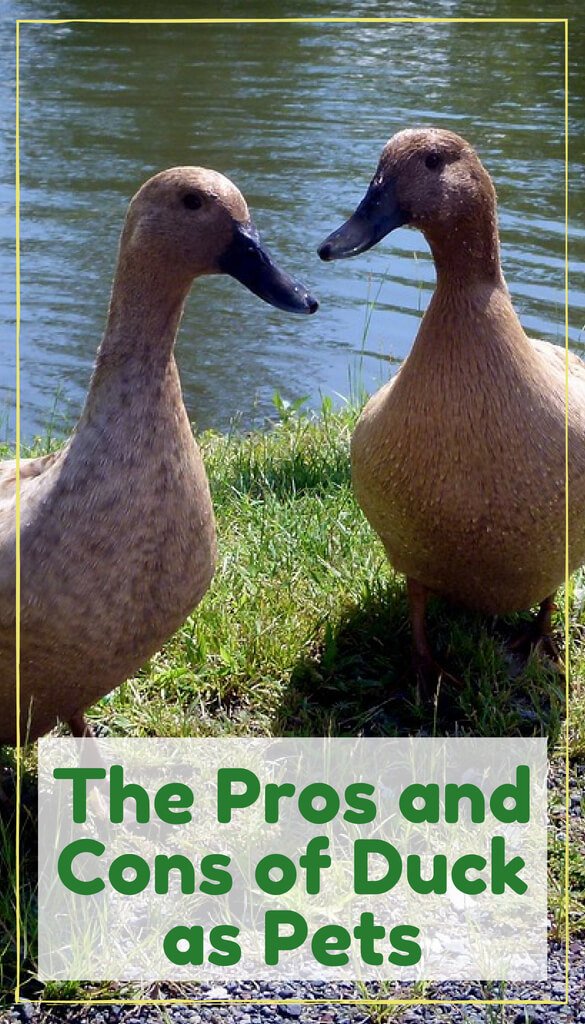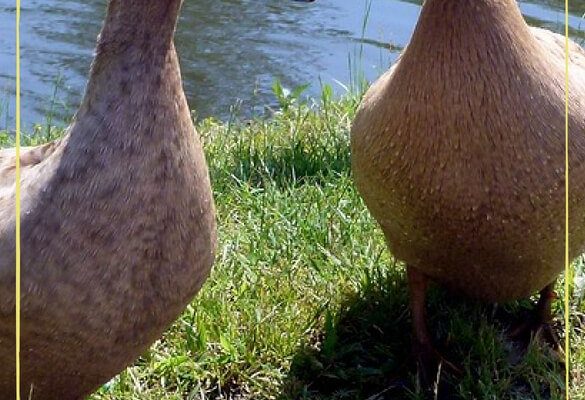
Let’s explore whether ducks are good pets. To help you out, we’ll break down the benefits and challenges of duck ownership, so you can make an informed decision if you’re thinking about adding one (or several) to your family.
Understanding Ducks as Pets
Ducks are social creatures that can create a lively and entertaining atmosphere in your home or yard. They’re not just pretty faces; they have unique personalities that often include quirky antics. Just like some people love their cats for their independence, others adore ducks for their playful, curious nature. They enjoy grooming themselves, splashing in water, and interacting with their humans, which makes for an engaging pet experience.
However, before welcoming a duck into your life, it’s essential to know that they have specific needs. For starters, ducks thrive in environments where they can forage, swim, and feel safe. Their housing and diet should be tailored to their needs, and understanding these factors can help you create a habitat where a duck can flourish.
Pros of Having Ducks as Pets
There are several benefits to having ducks around. Let’s take a look at some of the most compelling reasons why people find ducks to be great companions:
- Great Companions: Ducks are social animals and bond well with humans. They can recognize their owners and often enjoy being petted and cuddled, which makes for delightful bonding moments.
- Unique Personalities: Each duck has its own personality. You might find a duck that loves to follow you around or one that enjoys making you laugh with silly behaviors.
- Low Maintenance: Compared to dogs and cats, ducks can be easier to care for. They don’t require daily walks, and many breeds can be fed with basic pellets or grains. Just offer them fresh water and a safe space!
- Egg Production: If you’re up for it, ducks can lay eggs—delicious, nutritious, and often richer than chicken eggs. It’s a bonus if you’re interested in homegrown food!
These factors contribute to many people finding joy in owning ducks. Just imagine having a cute little quacker greet you every morning. Sounds delightful, right?
Cons of Having Ducks as Pets
While there are plenty of pluses to having ducks, they also come with challenges that potential owners should consider. Here are some cons to keep in mind:
- Space Requirements: Ducks need room to roam and a safe, secure outdoor space. A small apartment or yard might not be suitable for them to thrive.
- Messy Habits: Ducks can be quite messy! They love water and splashing around, which can lead to muddy areas and wet living spaces. Regular cleaning and maintenance are necessary to keep your home tidy.
- Vocalization: Ducks can be noisy! Their quacking can get loud, especially during mating season. If you live in a quiet neighborhood, this might pose a problem.
- Health Concerns: Like all pets, ducks can get sick. They require regular veterinary care, and it’s essential to keep an eye on their health, especially since some illnesses can spread quickly among birds.
It’s crucial to understand these downsides before making a commitment. Ducks can be wonderful pets, but being aware of the challenges is part of the responsibility.
Housing and Care Needs
If you decide to bring a duck into your life, it’s important to provide a suitable living environment. Ducks need a safe, secure space where they can roam freely and feel safe. Here’s what to think about when setting up a duck habitat:
1. Outdoor Space: Ducks thrive in outdoor settings where they can forage, swim, and explore. A fenced yard with plenty of grass or dirt is ideal.
2. Shelter: They need a secure shelter to protect them from predators and harsh weather. A simple duck house will do as long as it’s clean, dry, and well-ventilated.
3. Water Access: Ducks love water! Provide a kiddie pool or a small pond where they can swim and play. Just be prepared for some splashes!
4. Feeding: Ducks require a balanced diet that includes duck pellets, grains, and fresh greens. Make sure their food is suitable for their age and breed.
Taking the time to create a comfortable environment can greatly affect your duck’s happiness and health. Remember, a happy duck means a happy owner!
Social Needs and Interaction
Ducks are highly social animals, and they thrive on companionship. That means that if you get one duck, it’s often best to have at least two. Here’s why their social nature is essential:
– Bonds with Each Other: Ducks naturally form bonds within their flock. This social interaction helps alleviate stress and keeps them happy.
– Bond with Humans: Ducks can also bond with humans like you! They may follow you around, recognize your voice, and respond to your presence. Engaging with them regularly is key to developing this bond.
– Mental Stimulation: Ducks love to be active and explore. Providing toys or opportunities to forage keeps their minds sharp and engaged. Plus, it can be a lot of fun for you to watch!
Investing time in interacting with your ducks goes a long way. They’re not just pets; they can become beloved members of your family.
Costs to Consider
Owning ducks comes with its own financial considerations. Understanding these costs can help you prepare for your new feathered friends:
1. Initial Purchase: Depending on the breed, ducks can range from $5 to $50 each. Specialty breeds might cost even more.
2. Housing Setup: Building or buying housing, fencing, and a water source can add up. Plan for a few hundred dollars to get started.
3. Food and Supplies: Duck feed, bedding, and health care can cost around $20 to $50 a month. Don’t forget to budget for routine veterinary care and any potential health issues.
4. Ongoing Maintenance: Cleaning their living space and ensuring they have plenty of fresh water will take time and effort, too.
Thinking through these costs helps you understand what it really means to care for ducks beyond the initial excitement.
Final Thoughts
So, are ducks good pets? Honestly, it depends on your lifestyle and how prepared you are for the responsibilities they bring. Ducks can be incredibly rewarding companions, full of personality and life. They thrive in the right environment, and with a bit of love and care, can become beloved members of your family.
However, like any pet, they come with specific needs and potential challenges. By weighing the pros and cons and preparing adequately, you can decide if these adorable quackers are the right fit for you. If they are, get ready for a journey filled with laughter, joy, and yes, a bit of mess!

